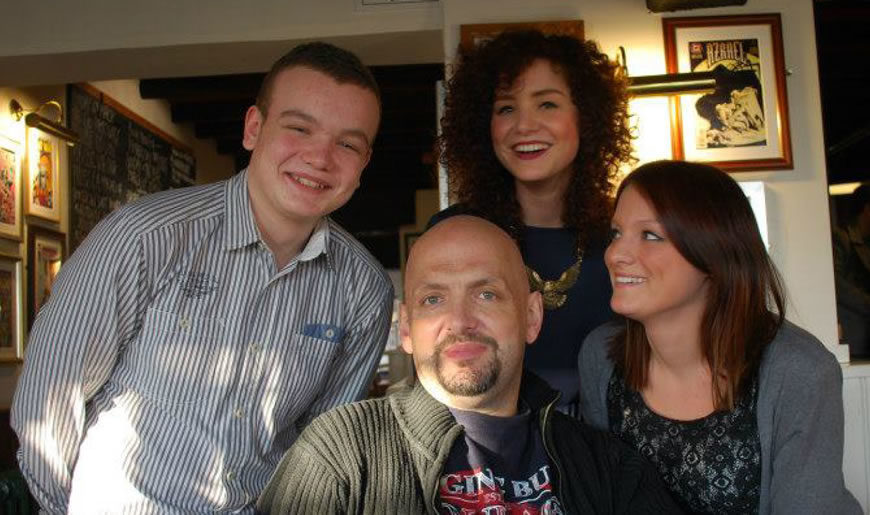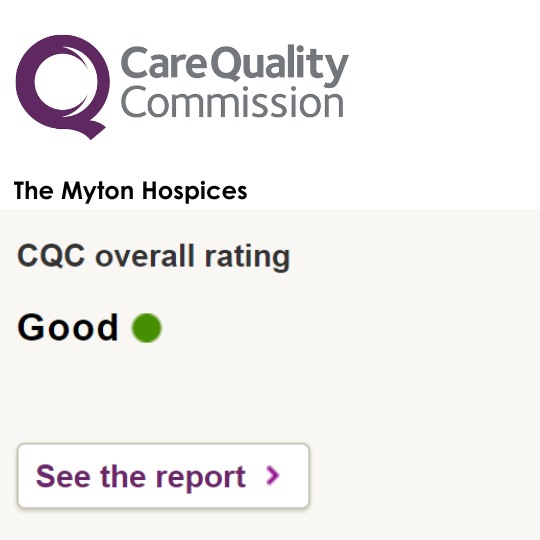I first experienced grief at the age of 6 when my tiny brown haired hamster died. His name was Jake (that’s right, I called my hamster Jake whilst my sister went for the adorable option of naming her hamster Lucky) and he insisted on biting anyone that touched him. I don’t remember much from this particular experience and I can imagine I cried for a day or so and then was quickly distracted by a new toy or game.
It is safe to say that when my Dad died in December 2013, it was nothing like when Jake died. I knew that in that moment, when I said goodbye to my Dad for the final time, my life had changed forever and there was absolutely nothing I could do to change it.
Was I told my Dad was going to die?
Yes. Was I prepared for it? Not at all. Throughout my Dad’s illness I tried to remain cheerful and optimistic, not only for my Dad but for the whole family, and this didn’t change when he was transferred to Myton.
I cannot even begin to imagine what it must feel like to be faced with death and I felt pretending it wasn’t happening might protect my Dad in some way and relieve any fear or anxiety he might be experiencing. Sadly, just before my Dad arrived at Myton he lost the ability to hold a conversation with anyone so I’ll never know if my tactics even worked.
Although I wouldn’t go as far as saying I regret choosing this approach when coping with my Dad’s illness, because at the time I felt it was the best thing I could do to support him, I do feel that now I am able to admit it has perhaps had a detrimental impact on my journey through bereavement.
It is almost two and half years since my Dad died and I know I am still very much in the in denial stage of my grief.
This became clear to me a year ago when I was walking back from university and I genuinely considered giving my Dad a call. Ringing Dad on the walk back from university was a regular occurrence and for some unknown reason these phones calls usually took place after my French classes- I am pretty sure this was so my Dad could practice his ‘French’, which mainly consisted of him telling me ‘to listen and repeat’ and informing me that ‘there was a cat in the garden’ in his best French accent. I think it was on this particular occasion, when I was searching for his name in my contacts, that I realised I hadn’t really accepted the fact he was no longer here.
Like anyone who has experienced a life changing situation, my emotions towards my Dad’s death have ranged dramatically over the past couple of years.
I have moments where I feel extremely lucky to have had such a charismatic, courageous and inspirational father for 21 years of my life but also angry to know that despite his courage and strength throughout intense immunotherapy and radiotherapy the cancer continued to spread. I am often overcome with a sense of gratitude for the outstanding care my Dad received from the exceptional nursing team at Warwick Myton Hospice, giving my family and I the best Christmas we could have wished for during such a difficult time, but also sad to know my Dad will never meet any of his future grandchildren or walk me or my sister down the aisle like I know he would have loved to; and sometimes I feel frustrated to know there was nothing my family or I could do to eradicate the cancer as well as guilty to be carrying on with my life without him here.
So, what do I feel is the best way to deal with bereavement?
Personally, I strongly feel there is no step by step guide to recovering from grief- I’m not even sure ‘recovering from grief’ exists. Each person’s experience is different and the way in which they cope with their emotions differs as well. I do not believe that I will have had a similar experience to Zoe and Sam, my sister and brother, even though we shared the same relationship with Dad.
I have never said this to either of them but at times I envy Zoe and Mum’s ability to freely express their grief and the pain or sadness they are feeling. I am sure Sam won’t mind me saying that we rarely discuss any emotions we felt at the time or currently feel and I know it’s something I am personally trying to work on.
So although I unfortunately do not have an answer as to how best to deal with grief, I would just encourage anyone who has faced or is currently facing a similar situation to talk about how they are feeling with someone they feel most comfortable talking to, whether that be a family member, a friend, a counsellor or even a colleague.
I always believed being strong was defined by remaining stoic throughout your experience when in fact I am beginning to think it takes an equal amount of strength and bravery to acknowledge how you are feeling and express the way in which your grief is affecting you.
I know I will never recover from my Dad’s death, and neither will anyone else in my family, but one day I would like to reach a stage where I am able to accept it.






